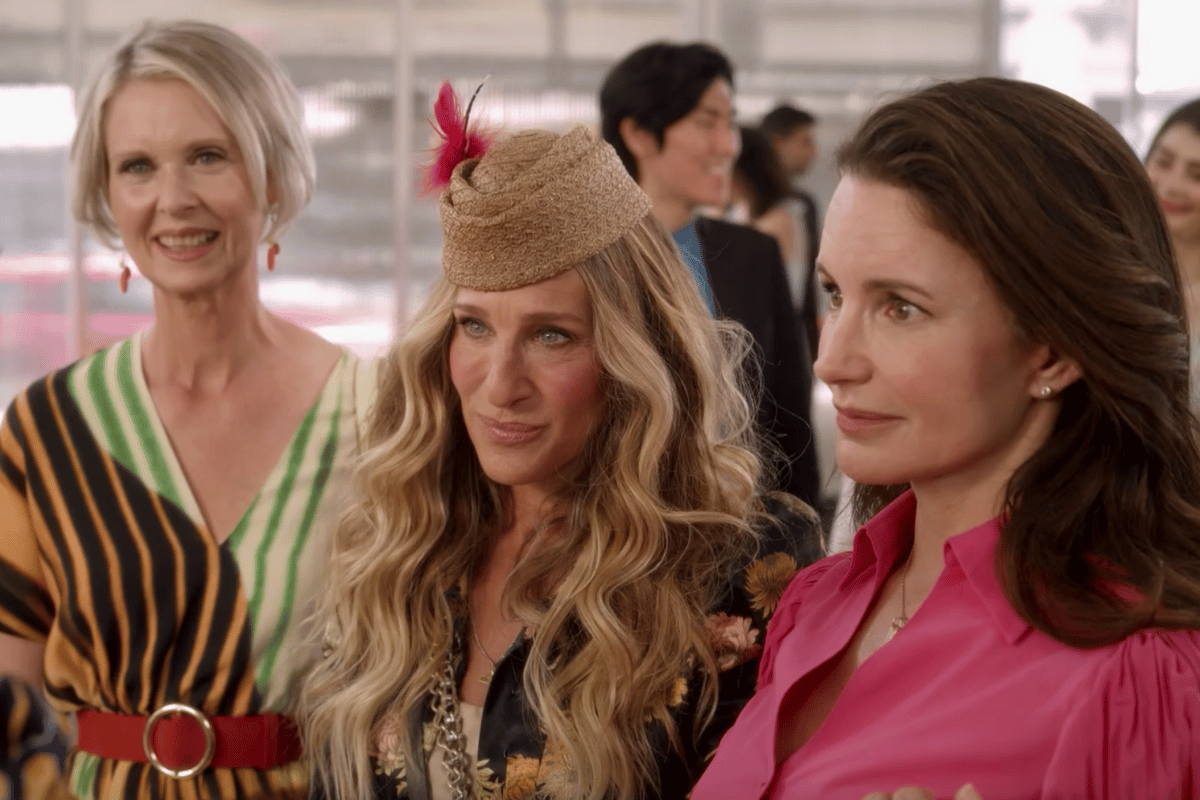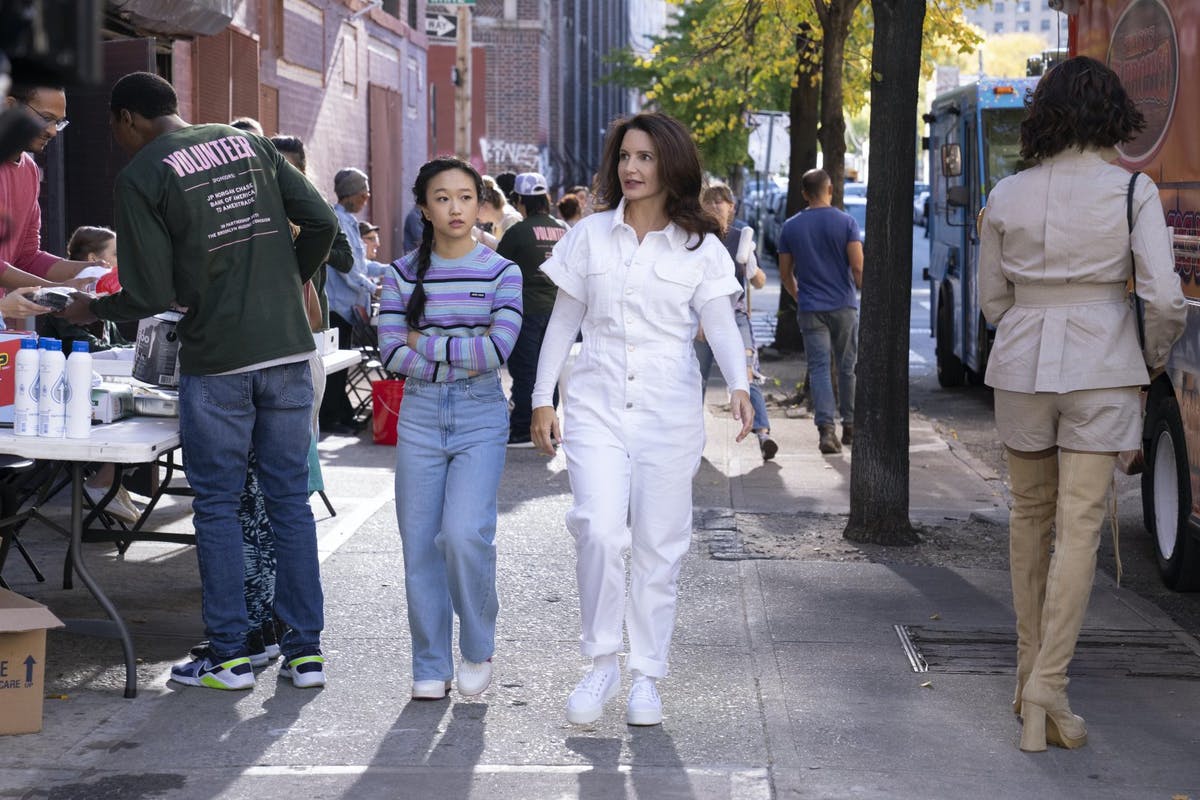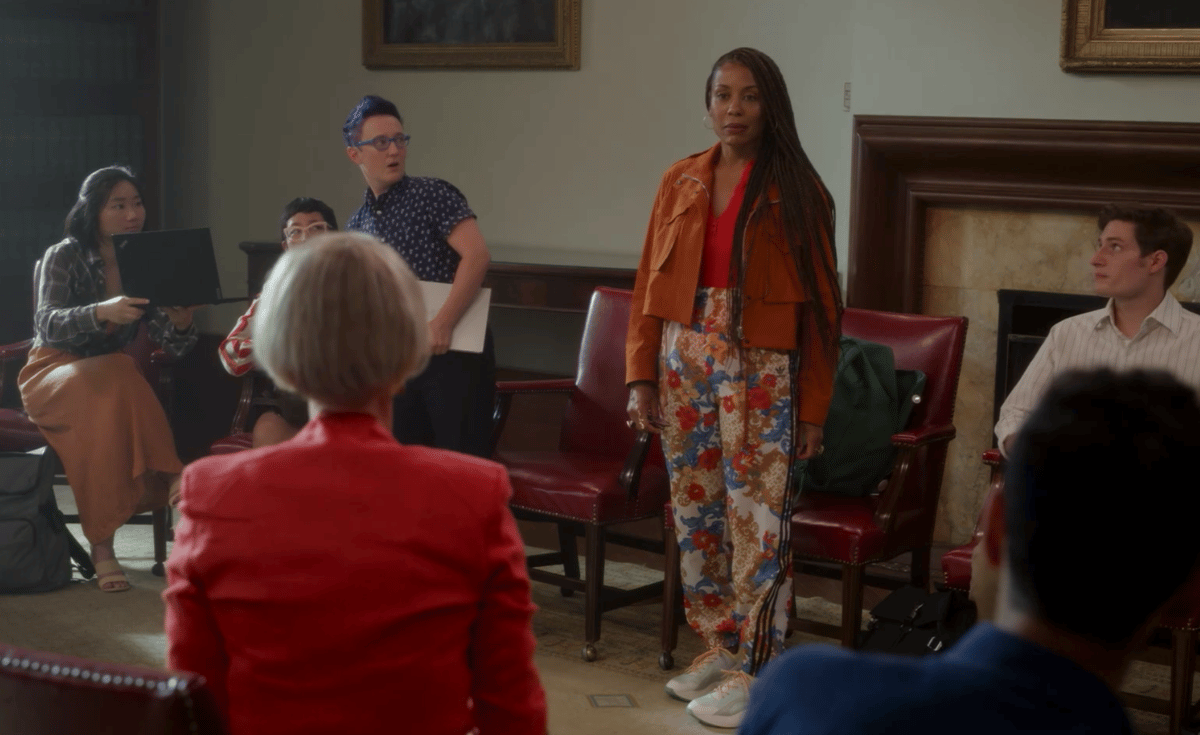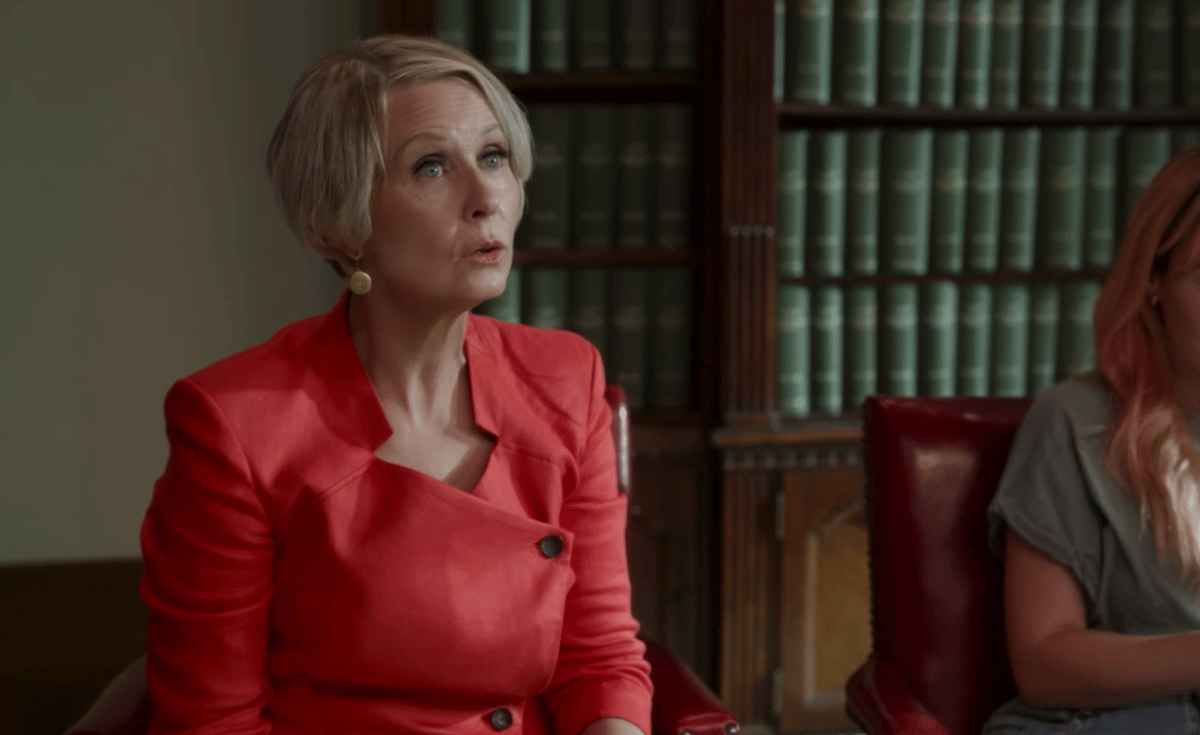
One of the best things about the Sex & The City reboot has been watching millennials protest that it is not an accurate description of what it’s like to be in your 50s.
This is highly amusing because I am 50 years-old and they are in their 20s and 30s.
Youngs, sit down.
We need to talk.
Specifically, we need to talk about your three biggest criticisms of And Just Like That because on behalf of my sisters in peri, I'm here to debunk them.
1. “Women in their 50s don’t talk about being old that much.”
Oh yes. Yes, we do. I can’t emphasise this enough. We do talk about being old. We sometimes use both the granny emoji and the word nana to describe ourselves and each other, especially when we are making dinner plans for 6pm.
But - and this bit is important because I think it's why you are freaking out about it.
We don't do it in a sad way, at least not among the women I know. We do it in the spirit of battle-weary soldiers who are fighting on a number of fronts including but not limited to: our changing bodies, society’s views of us, things we don’t understand and our hormones.
We talk about being old as a form of self-deprecation. An insult hurts less if you claim it for yourself before anyone else throws it at you. There is camaraderie in talking to your same-aged girlfriends about being old. It’s a way to define your tribe and reaffirm your membership in it. It’s a way to verbalise something society is telling you anyway and to redefine it as something fun you’re doing as a kind of group activity.
2. “Mother-daughter relationships aren't like that. Teenagers aren’t so dramatic.”
There was much eye-rolling among millennials about the scenes where Charlotte’s daughter Lily tries to use tampon for the first time and then loses the string and freaks out in a Portaloo.
 Image: HBO/Binge
Image: HBO/Binge
Those scenes were some of my favourite and any woman who claims they were unrealistic has clearly never lived with a teenage girl or has forgotten what it was like to be one. Who among us has not delivered or received instructions about how “you have to push it TOWARDS THE BACK. No, not straight up. The BACK. At an ANGLE.”.
After that episode aired, the WhatsApp group I have with my best school friends sparked up with much chat about when that time one of us used a tampon for the first time at a sleepover and we all had to talk her through it and then it got stuck and her big sister had to be enlisted to go in and get it. This shit is accurate.
3. “Miranda never used to be clueless. This is not who she is."
To this, I say hush now. I’m not sure how it happens, I honestly cannot tell you, but somehow you stop understanding words and concepts as you get older. Also, peri can turn your brain into a marshmallow that's had a sharp stick poked through it and is being roasted on a fire.
It’s not that you can’t understand the new words and concepts if they’re explained to you - slowly and repeatedly over a period of time until they sink in - but the problem is you often aren’t even aware that the new words or ideas exist. It's like you keep missing the meeting where people decide what it's not OK to say anymore.
 Image: HBO/Binge
Image: HBO/Binge
It’s not that you’re resistant to changing what you say or evolving your ideas, that's not what this is. It’s that you've somehow just fallen off the invitation list for the meeting. So then you say the thing and everyone looks at you like "Excuse me, but we talked about that in the meeting and we decided we're not doing it like that anymore" and you're always like, oh I'm so sorry, I honestly didn't realise it was the wrong thing to say but how in god's good name can I get on the list for the meeting or at least get the notes afterwards.
It's like turning up to your social netball game one week and finding out that now you can run with the ball. And then the next week you turn up and now you have to sing a song from Hamilton every time you try to shoot a goal. Wait, what?
For real. That is how disorientating it can feel to get older in a society where culture is determined by the youngs.
 Image: HBO/Binge
Image: HBO/Binge
For example, today, some of the Gen Z women I work with explained to me that we shouldn’t use the word ‘tribe’ in our social posts because it has cultural connotations and it could be seen as insensitive to use, especially if you're a white woman.
Hearing that, I suddenly felt like Miranda on the first day of college.
And Miranda and I are not the only ones to experience this feeling of disorientation. It's a common thing as you get older and it's wildly disconcerting - in that view, milennials are right. Miranda at 55 seems very different to Miranda at 35 and while I can't speak for the writers who made her that way, I will note that the three main writers (who all worked on Sex & The City) are all over 55 and two of them are women of her exact age.
Feeling like you're struggling to keep up is a thing.
This week I read a terrific essay about this in the Washington Post called: "Change Is A Constant And I’m Struggling To Keep Up."
In it, the 51-year-old author wrote about how it feels to realise you are no longer at the centre of culture. In fact, you’re not even sure what is going on some of the time.
"These changes in our culture can be a test for people like me. Many older Americans can be quick to say how soft and sensitive younger Americans are. How they can’t take a joke and how we fear for the future in their delicate hands. But there is another way to think about this. Perhaps we older folks are mistaking the younger generation’s kindness for weakness. Being inclusive isn’t the same as being gullible. And there are plenty of ways to be funny without being mean."
"You can dismiss young people as “too woke” if you want. But culture changes, and you can’t stop it."
"Turning this around, it is often hard for younger people to understand how getting older is at times deeply disorienting. It often feels as though the earth is shifting constantly under your feet; things that were once perfectly acceptable can turn harmful. Getting older, I’m learning, can often seem as though much of the world is trying to push you out. You can feel the ground you once knew slipping away."
Ooooph. Hard relate. Sometimes it does feel like you're being pushed out. Or that by inadvertently not knowing things, you're being left behind. That, to me, was the essence of Miranda’s character arc in And Just Like That, the one millennials are so scathing about.
Just because Miranda was the smartest, most switched-on one in the group when they were in their 30s that doesn't give her immunity from feeling out of her depth or using the wrong words in her 50s.
Sure, some of the bumbling and cluelessness was exaggerated for comedic affect (as if Miranda wouldn't be an avid podcast listener) but it’s a broad feeling I’m familiar with.
Because I used to be cool. Even a bit cutting edge. I used to be the youngest one in the room. And now I'm usually the oldest. Now, I often feel like I’m saying the wrong thing. Now, I sometimes hear disparaging words about young people coming out of my mouth in a grumpy voice that makes me sound like one of those old men on the balcony in the Muppet Show.
And yet.
There is so much I love about being at this stage of my life.
I've realised that some of the pushback from millennials about the way Carrie, Miranda and Charlotte are portrayed in AJLT is driven by fear. They insist these things about the character's lives aren't true because they don't want it to be true for them when they reach their 50s.
Except it probably will be true for you and I'm here to reassure you that it's fine.
Since I turned 40, I've enjoyed my life so much more.
I love that I give less fucks about what people think of me - you hear that from older women a lot because it’s really true. It's nonchalance meets assertiveness, and it's liberating.
That doesn’t mean we’re happy to offend people inadvertently. I still get excited by new ideas and new ways of doing things, even if they feel uncomfortable and my first instinct is to resist them. I have young people in my life who have been instrumental in helping me understand what it means to be gender diverse, what ableism looks like, what privilege means. These are all new - and often uncomfortable - concepts to a lot of people my age, whereas younger people, particularly Gen Z, have grown up marinating in them.
I love that I know who I am at 50 more than I ever have. I forgive myself more for my flaws and I have more compassion for the flaws of others. Life is fucking hard. We’re doing our best.
When the youngs look at women in their 40s and 50s and 60s, I suspect they view us with pity but don't.
We're good. We're so good. We may be more invisible than we used to be but there are upsides to that too. Our friendships are deeper. We're less insecure. The angst of 'will I have a baby and how many babies and when and what if I can't" is behind us. That ship has sailed. That kitchen is closed.
If we have children, they're getting older and more independent. We have more options and lived examples about who we can love, how we can work and what a family looks like than any woman before us.
And it's so much easier to get a restaurant booking at 6pm.
Feature image: HBO/Binge
Parents, we want to hear from you! Complete this survey to go in the running to win a $50 gift voucher.
